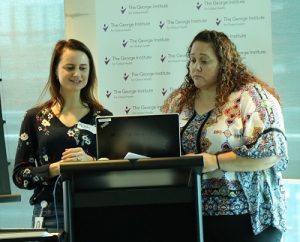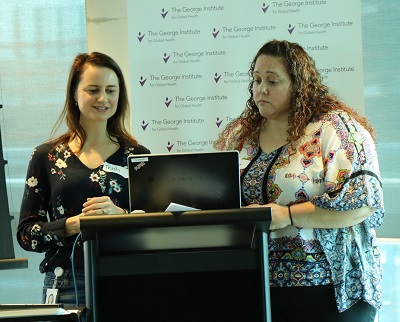Trauma informed care for Aboriginal and Torres Strait Islander women experiencing violence

First Response: Integrating trauma-informed care within primary healthcare for Aboriginal and Torres Strait Islander women experiencing violence within primary healthcare
Project Aim:
To provide evidence and critical insight into how the primary healthcare workforce can be supported to provide trauma-informed care that is culturally safe for Aboriginal and Torres Strait Islander women who have experienced violence.
Objectives:
- Bring together an action-oriented Stakeholder Committee with diverse expertise to form the foundation for a research partnership.
- Investigate how the primary healthcare workforce can be supported to integrate culturally safe trauma-informed care for Aboriginal and Torres Strait Islander women who have experienced violence by:
- establishing what policy, practice guidelines and/or frameworks exist that support integration of trauma-informed care within Aboriginal and Torres Strait Islander primary healthcare, and barriers and enablers to implementing these
- better understanding the experiences, strengths, challenges and training needs of the primary healthcare workforce who are providing support to Aboriginal and Torres Strait Islander women who have experienced violence.
The project focused on Aboriginal and Torres Strait Islander community-controlled services.
Project Team:
Project leaders: Dr Tamara Mackean, Patricia Cullen
Project partners:
- Australian Health Services Research Institute
- Katungul Aboriginal Corporation Community & Medical Services
- Illawara Aboriginal Medical Service
- Yerin Aboriginal Health Service
- Waminda South Coast Women’s health and Welfare Aboriginal Corporation
- Wollongong University
Administering organisation: The George Institute for Global Health
Project timeline: 1 January 2018—30 November 2018
Methodology
Decolonising methods which privilege the perspectives and strengths of Aboriginal and Torres Strait islander peoples were used to guide the project. The research project activity was carried out in four phases:
- Phase 1 (AIM 1): Engagement and formation of action oriented Steering Committee bringing together Aboriginal and Torres Strait Islander and non-Aboriginal stakeholders from primary healthcare and specialised services to provide direction and oversight of the research processes, knowledge translation and communication.
- Phase 2 (AIM 2a): Systematic review of literature, policy documents and guidelines investigating barriers and facilitators of integrating trauma-informed care within primary healthcare settings.
- Phase 3 (AIM 2b): Informant interviews using yarning methods with staff within Aboriginal and Torres Strait Islander primary healthcare and specialist services. This approach was selected because it promotes cultural safety and positions the interviewee as the expert in constructing their own story rather than being a didactic researcher-driven process. Purposive sampling was used to identify interviewees with insight and unique perspectives and the results were analysed using a framework that incorporates deductive (pre-determined) and inductive (emergent) thematic analysis.
- Phase 4 Synthesis of results: The final phase involved synthesis of the findings to deliver outputs that are end-user and culturally informed. This culminated in a workshop bringing together the research team and members of the steering committee with end-user representatives from health services within a collaborative participatory approach.
Project Findings
The results of the research activity and the scoping review showed that, despite violence against Aboriginal and Torres Strait Islander women being a longstanding issue, there has been little evolution of culturally safe policies where cultural safety includes considerations of sovereignty and self-determination, acknowledges the intersecting experiences of violence and trauma, and supports holistic care.
Project Outcomes
| Knowledge |
|
| Skills |
|
| Awareness |
|
| Behaviour |
|
| Other |
|

Patricia Cullen and Marlene Longbottom presenting at the Knowledge Translation (KT) workshop held on 18 October 2018 at The George Institute. Image courtesy of Patricia Cullen.
Related resources:
- Coffee & KT webinar, 7 March 2019
- Summary report: The First Response project: Trauma and culturally informed approaches to primary health care for women who experience violence

